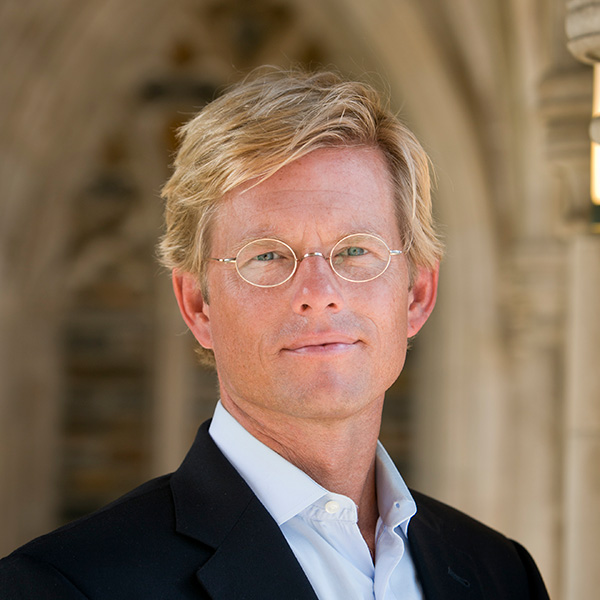In reading Andy Crouch’s remarkable new book on power, I was stopped dead in my tracks. The reason was this: “It is within institutions … that our most significant human experiences take place. Institutions are at the heart of culture making, which means they are at the heart of human flourishing and the comprehensive flourishing of creation that we call shalom. Without institutions, in fact, human beings would be as feeble and futile as a flat football” (“Playing God: Redeeming the Gift of Power,” p. 170).
Such a clear statement about the importance of institutions is hard to find today. Not only are institutions much-maligned; even the most committed to them would hardly say that it is in them that “our most significant human experiences take place.”
Yet Crouch is basically right. Of course, he defines institutions in a very broad way that includes families, sports, corporations and so on, but even when considered theologically, his point holds true.
For after all, the Christian church is an institution. Moreover, many of its extensions -- parachurch organizations, denominational bureaucracies, charities of this or that kind -- are themselves institutions, too. Some Christians, riding the latest wave of anti-institutional sentiment, prefer the word “community” to that of “institution” or even “church.”
But communities are really just institutions aborning (or, perhaps, a-dying), and to the extent that small communities identify themselves as Christian communities, they join hands with the larger history of the Christian church and participate in its basic patterns. Indeed, in the New Testament itself, ekklēsia (church) and koinōnia (community/fellowship) are theologically intelligible only in light of each other. Despite all the current sentiment that would say otherwise, when one thinks “Christian church” and/or “Christian community,” one has to think “institutions” at the same time.
Christian institutions are where Christians are formed, where we have our most significant experiences of Christian life. This is hardly to say that we don’t have significant experiences outside our Christian communities. But it is to say that the context in which we become habituated into what being Christian is turns out to be institutional. If leaders know nothing else about the power of their institutions, they should know that their institutions are where Christians become the Christians they become.
In this light, it is no wonder that the New Testament texts spend so much time trying to show who the leaders of the church are: they are those who will shape the space in which Christian formation happens. In contrast to the reluctance of many today to speak frank words about changing churches, Paul chided his fellow Christians in Galatia for their willingness to follow another set of leaders.
The Galatians’ defection to the “disturbers” was tantamount to switching gospels. “I am astonished that you are so quickly deserting him who called you in the grace of Christ and turning to another gospel -- not that there is another gospel, but there are some who disturb you and want to turn away from the gospel of Christ” (Galatians 1:6-7).
Paul’s broader point was not that the Christians in Galatia should be loyal to him personally because he was their leader -- even if “we or an angel” should preach another gospel, do not follow it, he would say -- but that the gospel he first preached required allegiance in the form of community life. To leave that gospel under the influence of other leaders was to establish a community other than the Christian church.
In Corinth, Paul’s opponents, the “super-apostles,” as he sarcastically calls them (2 Corinthians 11:5), were not just people who tried to teach different doctrine from Paul’s. They were also trying to create a different institutional pattern.
To follow them would have been to create an overall different church in Corinth (2 Corinthians 11:1-4). Paul argues and pleads with the Corinthians to stay true to the foundational pattern that would call them from sin and shape them toward holiness, to reject the teaching that would lead them astray and form them harmfully.
In Crouch’s terms, the super-apostles are those who are not themselves at stake in the “institution’s pain and brokenness” (219). Again, cynical readings to the contrary, Paul is not interested in personal loyalty in any kind of ego-centered way (see especially 2 Corinthians 12:19). His claims are instead rooted in the awareness that the Corinthian church will be what Christians are in Corinth. Theological truth, for Paul, is finally inseparable from the institutional pattern in which it gets expressed. The Corinthian Christians should reject the “false apostles” (2 Corinthians 11:13) not for Paul’s sake but for the sake of the chance to witness to Christ in the shape of their common life.
In the Acts of the Apostles, in other Pauline letters, in 1 Peter and beyond, the New Testament consistently highlights the significance of the leaders who guide Christ’s church. We have long known this, of course.
But what Crouch helps us understand in the wake of the last 45 years or so of anti-institutional sentiment is in part why this is so significant. It is not only that the leaders are those who see that the truth of the Christian faith can be passed on; it is also that institutions are where Christians have their most significant experience of being Christian.
Inasmuch as the leaders of the institution are those who are the most determinative shapers of institutional life, it is they who will turn out to create the basic conditions under which we experience what it means to be Christian.
This is, to be sure, an enormous weight for leaders to carry. But there is no way to put it down without simultaneously discharging the responsibility of Christian leadership itself. It is also, however, an enormous gift, one rich with potential to use the responsibilities of power for the sake of deep discipleship and Christian witness.








